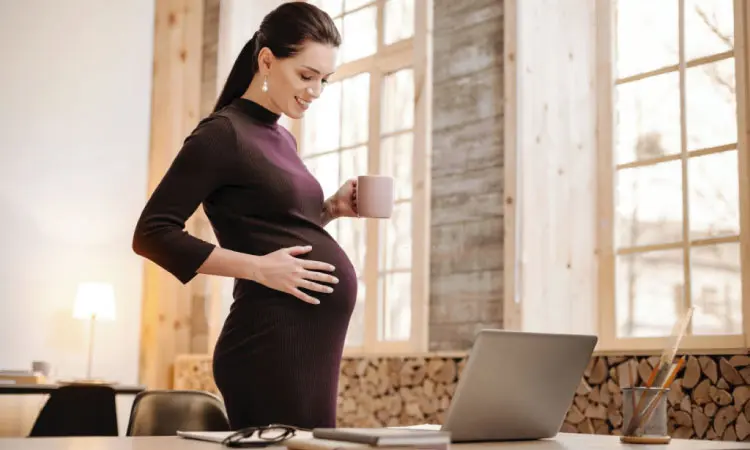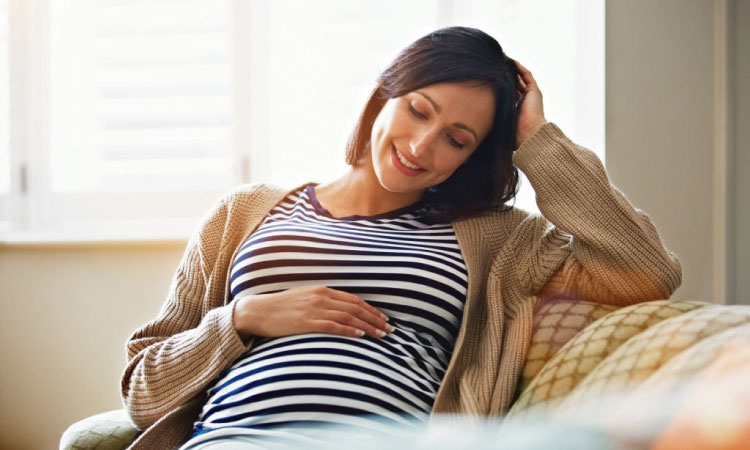The second trimester of pregnancy is the best in all three trimesters. A time when morning sickness starts reducing, the energy levels are up, and the baby bump starts showing and that certainly is discomforting. It is also a crucial time to be vigilant regarding the diet as the organs of the baby start growing and developing. The second trimester is also a turning point for the mother and fetus. A time where the pregnant woman feels better, and the baby starts showing in the belly. Since it is such a precarious time, it is also important to know what precautions should be taken during this time.
What Should Be Avoided During 2nd Trimester?
A healthy diet during the second trimester is indeed the key to a healthy baby and even ensures that the mother gets enough nutrients. Pregnancy is a time for extra care as the pregnant woman nurtures two bodies, so the diet is of utmost importance. It is thus mandatory to have a list of what should be eaten vs. what things to avoid.
A second-trimester diet can help in maintaining a healthy pregnancy. The nutritional sources that can be included in the diet should comprise of1
- Carbohydrates
- Proteins
- Minerals
- Fats
- Vitamins
- Lots of water
Apart from these, the nutritional needs should be divided into three portions, and every meal should comprise nutrition to combat the energy levels throughout pregnancy.
According to a study, the diet plan during the second trimester of pregnancy should comprise of a combination of the following heads.
- Consume at least five portions of green leafy fruits and vegetables to meet the daily requirements of iron and folic acid
- Every meal should have carbohydrates like cereals, bread, etc.
- Consuming 2-3 portions to meet the daily calcium requirement
- High protein foods like eggs, fish, beans are to be consumed twice daily
- Omega 3 fatty acids about 200-300 mg per day, which you can get by eating two servings of fatty fish per week.
- Choose healthy snacks for satisfying hunger pangs
Related Reading: 21 Pregnancy Superfoods To Include In Your Pregnancy Diet
After knowing the requirements and healthy options, it is also imperative to know the foods that should be avoided, and they are:
1. Seafood
It is advised not to have large fish like sharks, swordfish, and mackerel since they have high mercuric content which is harmful to the baby. One should limit the seafood intake to 8 or 12 ounces weekly.
Calculate Due Date With LMP
2. Unpasteurized foods
Avoid having unpasteurized products like soft cheese, juices, and milk products as they have bacteria that can result in infections.
Related Reading: 9 Types Of Cheeses To Avoid During Pregnancy
3. Caffeine

It is not advised to drink too much caffeine and limit the consumption to 200 milligrams which is one or two cups only. An excessive amount of caffeine – Having 150 to 300mg of caffeine is considered safe since one cup of coffee contains 95 to 165mg of caffeine whereas a cup of black tea has 45mg of caffeine2.
4. Artificial sweeteners
It is not advisable to have artificial sweeteners in excess during the second trimester of pregnancy. It increases the chances of gestational diabetes and may lead to the child being obese later in life.
5. Alcohol
Alcohol along with a few other drinks should be avoided during pregnancy as they can result in complications, abnormalities, etc. They possess a danger of causing miscarriage, stillbirth, or even fetal disorders.
Since the umbilical cord thickens during the second trimester and carries nourishment to the fetus, utmost care should be taken so that no harmful substances pass through the cord and reach the fetus. Therefore, refrain from alcohol, tobacco, etc.
Common Pregnancy Problems During The Second Trimester-
Given below is a list of changes and symptoms that take place during the second trimester.
- Increase in appetite- The second trimester is the time when the movement of the fetus can be felt which is around 20 weeks, this is also referred to as quickening3
- Growing uterus- The uterus starts growing to the height of the belly button at the same time, which is around 20 weeks, making the belly visible to all4
- The belly skin- It starts getting itchy as it grows, and some women also feel pain on the sides of the body as the uterus stretches. Since ligaments stretch to support the uterus, the lower stomach starts aching as well
- Urination- The urge to urinate now starts decreasing as the uterus grows out of the pelvic region thus putting less pressure on the bladder
- Dental region- The gums become very soft and can even bleed. This happens due to the increase of the hormones (progesterone and estrogen) and also the blood flow that can affect the mucous membranes of the mouth
- Varicose veins- It is common for varicose veins and hemorrhoids to appear
- The nasal region- The nose becomes congested, and nose bleeds happen as well, again due to the increase of hormones (estrogen and progesterone) and also the blood flow that affects the blood vessels of the nose
- Vaginal discharge- A white-colored discharge from the vagina called leukorrhea is also seen but a blood discharge or a colored one can signal complications and needs medical intervention immediately
- Increase in weight – The increasing weight can even result in backaches
- Swelling- Swelling of ankles is also very common
- Skin Pigmentation- Due to hormonal changes, skin pigmentation on the abdomen and face can be seen
- Other health issues- It is common for constipation, indigestion, and heartburn to continue just like it happens in the first trimester
- Dizziness- Dizziness due to low blood pressure is experienced as well
Related Reading: 12 Signs Of Healthy Baby In Womb- Trimester Wise
Common Pregnancy Problems And Its Prevention In The Second Trimester
1. Stomach pains
The womb starts expanding which tends to stretch the ligaments that result in stomach pain This pain is experienced in the lower tummy, hips, groin, or both sides. In case of such pain, it is important to get it checked by a medical health expert5.
Few remedies that can ease the pelvic ligament pain are:
- Always lie on the opposite side to the pain
- Take time when turning on bed and moving
- Take a warm bath
- Always lie sideways to prevent stillbirth
- The pelvic area pain can even be due to pelvic girdle pain
Related Reading: 7 Home Remedies For Abdominal Pain During Pregnancy
2. The correct time to get medical help
Since so many changes take place so it is imperative to know the right time and circumstances under which the doctor’s intervention is a must.
According to our panel gynaecologist Dr Ankita Patel Tayal, medical help is required if,
- One experiences pain while passing urine which could be a urine infection
- Blood in urine or smell also indicates a urine infection
- Bleeding from the vagina, a signal for miscarriage or placenta issues.
- Pain on one side which is severe could be an appendicitis sign.
- A change in the baby’s movements
- A gush of fluid signalling premature labor
- If the pain is in the chest or stomach with swelling in hands, feet, and face, headache, or blurred vision- a sign of pre-eclampsia
3. Leg cramps
Leg cramps can start either in the second or third trimester of pregnancy. There is no one reason for the same but many theories revolve around it and some of them are listed as below6
- The fatigue experienced from carrying the extra weight of the baby
- Having a diet with calcium or magnesium deficiency or excess phosphorus
- Compression in the blood vessels of legs
- Hormonal changes resulting in pains and aches
Since leg cramps are common in pregnancy, but not preventable, few home remedies are recommended for leg cramps during pregnancy like:
- Flexing the feet- To do this, straighten the leg and flex the ankle and toes back towards the shins for some time. This can be done by getting up on feet or even in bed
- A cool compress- An ice pack or cool compress helps in stopping a spasm
- Warm pack- To subside the pain, a heating pad can even be tried for relief
- Massage- Getting oneself treated to a prenatal massage also helps in relief from pain
4. Back pain
Back pain is very common during the second trimester of pregnancy. These hormonal changes in pregnancy can cause the pelvic joints are becoming soft and prepare for childbirth. The centre of gravity changes as the uterus becomes bigger. The pregnant woman starts to carry herself differently to balance the weight. Even the abdominal muscles start separating as the uterus starts to press them making the abdominal wall very weak7.
A few ways in which the pain can be eased off are:
- By practicing a good posture while sitting and standing
- Take a break by getting up in between while sitting for a longer duration
- Lifting heavy objects by not bending on the waist but knees
- Try not to reach things overhead
- Try and sleep on the left side by bending on the knees and hips
- Place a pillow in between the legs to minimize pressure on the back
- Strengthening the stomach muscles helps in easing the pain
In case one experiences lower back pain with painful urination it can be a sign of bladder or kidney infection while a consistent back pain low or dull could be a sign of preterm labor. Severe back pain accompanied by vaginal bleeding or discharge indicates a serious issue.
Related Reading: Lying On Your Back During Pregnancy- All You Need To Know
5. Headaches
Headaches are another common symptom in the second trimester of pregnancy. Frequent headaches are experienced by many women which starts by the first trimester8.
Hormonal changes like fatigue, hunger, tension, and stress are all very common and to be calm, one should relax, eat regularly, and take good rest.
Some of the ways to relieve headaches are:
- Applying a warm compress to all the aches and pains in the sinus region of the head. This comprises both sides of the nose, the centre of the forehead, and even the temples
- If the headache is due to tension, a cold compress can be applied to the back region of the neck
- Using relaxation exercises like closing eyes and reducing stress also helps with a healthy pregnancy
The Top 10 Precautions To Take In The Second Trimester Of Pregnancy

Many symptoms in the second trimester of pregnancy are discomforting and painful. Precautions and remedies for treating these are discussed as below:
1. Do not take medications without proper consultation with the doctors
Most of the medicines or drugs can easily pass through the placenta to the fetus, so always a good idea to have a proper consultation with the doctor9.
2. Don’t get stressed
A beautiful phase like pregnancy should be enjoyed stress-free and happily as the mood of the mother also affects the baby. Though it is easier said than done since the hormones have a big role to play in it. It is thus best to practice breathing exercises and relaxation techniques as well10.
Related Reading: 12 Simple Ways to Prevent Pregnancy Nausea
3. It is not advisable to lie on the back for longer hours
Expectant mothers are recommended to avoid lying on their back for a longer duration as the uterus is large and puts pressure on the blood vessels and spine in that area. This reduces the blood flow to the heart and even makes the baby suffer since he might not get proper oxygen from the mother. Lying on the left side is more favourable.
4. It is not advisable to indulge in dangerous sports
It is important to maintain an active lifestyle but at the same time, one needs to be aware that there is a narrow line between being active than overdoing it. It is not advisable to exhaust the body with a rigorous workout as this type of stress can stop the blood flow to the placenta thereby reducing the oxygen supply to the baby. Giving up high-risk or adventure sports can even be traumatic to the abdomen.
5. It is best to avoid high heels
High-heeled shoes are a total no and not safe at all from the second trimester of pregnancy onwards. The spine is consistently adapting to the increased pressure and wearing uncomfortable footwear can make things difficult as the balance of the body can get affected. The ligaments in the ankle joint get affected as well. Wearing stilettos even changes the uterus position making it uncomfortable for the baby. Heels no higher than 5 cm should be used.
6. Don’t consume too much caffeine
Caffeine consumption by the mother is not good as it can reach the baby through the placenta increasing his heart rate. So, it is advised to drink only 1-2 cups of coffee daily11.
7. Don’t smoke
Both active, as well as passive smoking, is dangerous in pregnancy. Chewing tobacco also leads to an increased risk of premature birth. Smoking, as well as intake of tobacco, can even impede the growth of the fetus. Not only the mother but even the relatives should avoid smoking in the presence of the mother.
8. Don’t drink alcohol
Alcohol or red wine during pregnancy can easily pass the placenta to the baby’s bloodstream. It even disrupts the psychological and intellectual development of the baby. It can even affect the brain of the baby12.
9. Avoid having colas, sodas, and artificial sweeteners
It is important to stay well hydrated during pregnancy by having lots of water, fresh juices, and best to avoid sodas, colas as they are not good for the health of both the mother and the baby.
10. Avoid lifting very heavy weights overhead

With the increasing weight of the baby, the pregnant lady is not advised to lift very heavy weights as it is not safe and good for the mother and the baby. It can result in low birth weight and premature labor.
Related Reading: 8 Benefits Of Exercising During Pregnancy
Thus, a healthy diet for the pregnant lady helps to sail through the second trimester smoothly and paves the way, and prepares her for the third trimester as well. It even ensures the baby is healthy and the mother is strong and ready. A little vigilance on things to be avoided and precautions to be taken gives way to a smooth pregnancy and less stress also results in a happy and healthy child.
FAQ’s
At the time of pregnancy, a woman with average weight should put on at least 25 to 35 pounds, which is 1 to 2 pounds weekly in the second trimester.
Excess weight gain can even lead to pregnancy complications like large babies, high BP, and caesarean delivery.
During the second trimester of pregnancy, women crave a specific type of food, either sweet or salt. Though no clarity is there why these cravings are developed for a particular type of food, doctors do attribute it to hormonal changes.
It is common for the women to have cravings for:
-Spicy foods
-Chocolates
-Fruits
-Sweets
A myth prevails that whatever a mother eats affects the baby and the baby even develops allergies due to this.
Though studies show that no such connection exists between food allergies and the food taken during pregnancy.


